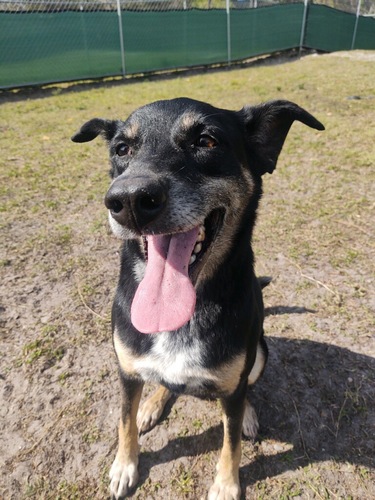

10 Things You Need to Know About Your Aging Dog
As your dog ages, you may notice differences in its behavior and health. Monitoring these changes can help you make their golden years more comfortable and happy.
Understanding your dog's age is the first step to helping them live happy lives into their senior years.
Check out this handy dog age calculator to determine your dog's age based on their breed... And no, this isn't as simple as 7 years for every X years old your dog is!
Dogs tend to hide the pain, meaning it can be tricky to spot when older dogs are struggling.
Any changes to your pup’s normal behavior or appetite could be signs they’re hurting, and a trip to the vet should be scheduled swiftly.
Older dogs are susceptible to many of the same ailments as humans, and cataracts (or blindness) is one of them.
If your pup’s sight is deteriorating with age, you must create a senior dog-friendly home. Clean up all clutter and valuables, mark different rooms with different scents, use different textured rugs throughout the house, and be sure not to move familiar items such as furniture or their food/water bowls.
Hearing is another age-related luxury that can fade as your dog ages. If you notice your dog isn’t listening to your commands, they might not be ignoring you; they might be going deaf.
It’s essential to get your dog checked out by the vet to ensure deafness is age-related and not a symptom of a more serious medical issue.
While we shouldn’t be overfeeding our pets anyway, this becomes particularly critical as your dog ages.
A senior dog may not have the muscle or bone strength to deal with extra weight. If your pup also suffers from illnesses such as arthritis, this could be a recipe for severe pain and discomfort for senior dogs.
Changes in your dog’s behavior are always important to monitor at any age, but it becomes particularly vital in their senior years.
Dementia is also, sadly, a disease that your dog may develop in old age. If your pup seems to get stuck in rooms, staring at walls, is soiling himself, or seems disorientated, this could be a sign that they have dementia.
Like old people, senior dogs may have difficulty regulating their own body temperature, making them more vulnerable to extreme weather conditions. To help them, put them in warm coats for winter walkies or any other time they’re outdoors. You could also move their bed closer to the radiator.
Many dogs may seem to find it more difficult to get comfy as they age. This is usually due to their muscle mass and bone density declining over time, plus any weight loss or other medical issues they might experience.
To improve your older dog’s quality of life, be sure to provide plenty of cushioning and soft bedding in any room you spend lots of time, so they can rest comfortably near you throughout the day. You might also want to consider a dog ramp to help them transition to/from the couch or your bed more easily.
Older dogs may need more regular grooming. Whether you go for a full blowout at your local pet salon or stick with a bath and brush at home, grooming is a lovely bonding exercise for you and your beloved senior dog and will also help keep them nice and healthy in their old age. And don’t forget dental care, either!
Remember, your senior dog is still a puppy at heart and desperately wants to please you. If they are suddenly soiling themselves (despite being housebroken for years), knocking over ornaments, or ignoring when you call, chances are they’re not being disobedient; they’re just getting older. Be patient and understanding with them.
Taking the time to understand your senior dog’s needs can dramatically improve their quality of life in later years… And after all the love they’ve given you over their life, don’t you want to make sure they’re happy to the end? More more information visit https://porch.com/advice/prepare-your-home-for-senior-pet
Previous Article
Next Article